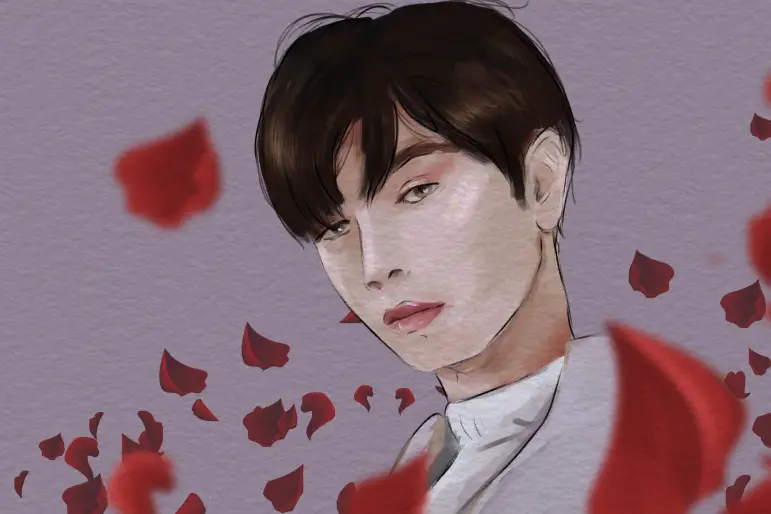Before the 1990s, K-pop may as well have been a complete non-entity. But by the start of the new millennium, it was a full-fledged cultural phenomenon.
True to form, K-pop began with a boy band. In 1992, Seo Taiji and Boys changed the landscape of South Korean pop culture as they hybridized catchy Korean lyrics with hip-hop dances and popular American instrumentals. They were extremely successful despite criticism from older generations, and soon, groups such as Sechs Kies and H.O.T. would solidify K-pop’s status as a beloved staple of Korean entertainment. These early groups laid the groundwork for K-pop idols for decades to come, but they didn’t just revolutionize the music scene — they revolutionized masculinity.
Until this point, harsh gender roles permeated most levels of Korean society. Men were expected to be the breadwinners, patriarchal heads-of-house and proud participants in the military. But as people grew disillusioned with their militaristic and single-minded patriarchal culture, the pretty boy aesthetic of idol groups quickly rose in popularity.
Following in the footsteps of Seo Taiji and Boys, companies like SM Entertainment were quick to create new boy bands, each of them bringing in clear faces, sweet lyrics and a general sense of wholesomeness. In a similar vein as the bishonen of Japan, which gained popularity around the same time, K-pop idols embraced “soft masculinity,” which juxtaposed attractive men with androgynous aesthetics.
Ever since K-pop’s shining debut, the dyed hair and dramatic styles of beloved celebrities have been the latest trends. Korean men currently account for 21% of global sales in men’s skincare products, with the most per capita spending by far. Even when later years saw a divergence from such aesthetics in favor of more traditionally masculine “beast idols,” whose buff physiques and edgy attitudes set them apart from softer singers, the use of makeup and flashy clothes remained common among both celebrities and fans alike.
Current K-pop boy bands, like global sensation BTS, shatter the more rigid and hyper-masculine expectations that accompany men’s gender roles by frequently wearing makeup and more feminine articles of clothing. Member RM, or Kim Nanjoon, said that the group never intended to have such an impact but that they are simply “living in a time where labels that we call ‘masculinity’ or ‘manly’ are vanishing” and they’re just trying to be cool in a way that doesn’t take gender into account.
Since BTS. continues to dominate the charts, along with other K-pop groups like EXO and Got7, it’s safe to say that they succeeded.
Because K-pop is also highly successful abroad, men in other countries followed suit. The Hallyu, or Korean wave, saw the same trends that normalized soft masculinity in South Korea spread throughout East and Southeast Asia first, before slowly worming its way to the Western world. The men featured in South Korean cultural exports all exist in stark contrast to the more rigid patriarchal expectations that might exist elsewhere, and they popularize a different kind of man. From South Korea to Kazakhstan to the United States, K-pop and its related cultural commodities challenge gender norms with its flashy outfits, pastel hair colors and dramatic makeup looks.
This form of self-expression provides a popular alternative to the hyper-masculine norms in East Asia, the United States and just about every other patriarchal society. It destigmatizes beauty trends and behaviors previously derided as too feminine. It pushes against the limits of traditional gender roles, refusing to accept that masculinity and femininity are two opposing forces.
That being said, nothing can exist without detractors. For over a year, the Chinese government has been trying to quash the growing number of Chinese men who, like those in South Korea, are embracing feminine or gender-neutral fashion, regardless of traditional social categorization.
K-pop became the scapegoat for a masculinity crisis that laments at the girliness of younger generations and its alleged link to the proliferation of fan culture. The Chinese government even banned “sissy men” from television in response to the influence of K-pop. And despite its popularity with teenagers and Asian Americans in the United States, K-pop isn’t always accepted with open arms. BTS received online mockery in multiple countries for their deviation from cultural expectations — you’ve probably heard at least a few people online joking that male K-pop stars are basically a bunch of girls.
Additionally, while K-pop has popularized the acceptance of a wider understanding of masculinity, South Korean culture as a whole remains highly patriarchal and heteronormative, as the blurred lines between masculine and feminine presentation don’t always translate into other aspects of life.
Yes, Korean men are okay with wearing makeup and experimenting with their hairstyles or clothing choices, but anti-feminist movements have been on the rise for a while, too. And sexism is still sexism, even if it comes in prettier packaging. According to news reports and statistics, younger men are the ones less sympathetic toward feminism, less critical of the patriarchy and more likely to engage in hostile gender discrimination. Unsurprisingly, South Korea ranks poorly when it comes to gender equality.
Furthermore, the widening definition of masculinity also doesn’t strictly correspond with a reevaluation of feminism or queer rights. Just look at the recent backlash against An San, a South Korean archer. Despite her exceptional performance in this year’s Olympics, men on the internet lambasted her for her short hair. Men hurl similarly antagonistic hostilities against anything associated with feminism, which — in addition to short hair, apparently — so far includes emojis and mini sausages.
Still, South Korea has come a long way from the 1990s when K-pop stars would receive mockery for their fashion statements instead of praise and when anything but militaristic hyper-masculinity was equated with social deviance instead of attractiveness. Besides, while it hasn’t been used in such a way, the changing gender norms could be a force for gender equality and queer expression as time erodes the barriers between what is acceptable for each gender.
K-pop has so much potential to change the way we perceive gender roles. South Korean understandings of masculinity continue to evolve alongside K-pop, and it’s refreshing to see men reject the patriarchal norms of previous generations. There’s a long way to go, of course, but we’re already pretty far from where we started.

















